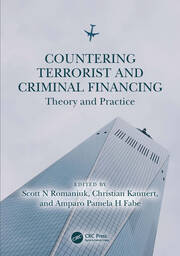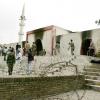SSPC's Animesh Roul profiled India's most wanted terrorist Masood Azhar
SSPC's Animesh Roul profiled India's most wanted terrorist Masood Azhar in Jamestown Foundation's Militant Leadership Monitor.
The Jihadi Demagogue: A Profile of Maulana Masood Azhar of Pakistan
September 30, 2013
Mumbai Terror Attacks: Agencies Yet to Learn Hard Lessons
For almost over sixty hours, Mumbai, the financial capital of India, witnessed a series of terrorist attacks, multiple hostage crisis, mindless killings, fierce gun battles and at the end, a disrupted life. The terrorists have struck major targets including luxury hotels and a Jewish Center frequented by Westerners and elite Indian only to be holed up later inside these buildings with innocent civilians as hostage. Their demand was the safe release of Mujahideen held in Indian prisons.
Islamic Terror Tentacles: Kerala Militants Fighting for Kashmir?
The identification of at least four slain Kerala based militants in Jammu and Kashmir early this month raises some vital questions about Islam and terrorism in India: What inspired Muslim youths of Kerala to fight for a cause alien to them and that to in a distant land? How far these Terror groups have penetrated into India's hinterlands getting easy recruits for their subversive activities?
Democratic Pakistan and the Global War on Terror
The terrorist attacks on the World Trade Centre on September 11, 2001 resulted in a historic partnership between the U.S. and Pakistan. Pakistan emerged as a key ally of the U.S. in the global war to counter terrorism. Though barely realized, in February 2008 this war entered a new phase. The U.S. had thus far fought the war against terrorism with the support of the dictatorial regime of the Pakistani President Pervez Musharraf. The parliamentary elections in Pakistan in February 2008 transferred political authority in favor of the democratically elected government.
Jemaah Islamiyah: Survival in Question Following High Profile Arrests
One of the most dreaded terrorist groups in Southeast Asia, Jemaah Islamiyah (JI) is presently facing a leadership crisis. The arrest of two of its most prominent leaders, Abu Dujana and Zarkasih (also known as Yusron Mahmudi and Abu Irsyad respectively) has jeopardized JI’s future plans in the region. Of late, JI has faced the wrath of the anti–terrorist initiatives by the Indonesian government duly supported by other Southeast Asian neighbours as well as Australia.
Agro-terrorism: Not So Far From Reality!
Agro-terrorism has received little or no attention in India [or for that matter in South Asia] because terrorists have yet to employ agricultural assaults as a method of operation in this region. The threat scenario would involve a deliberate introduction of a disease agent, either against livestock or into the food chain, for purposes of undermining stability and/or generating fear among masses. Even terrorist group can achieve their objective by using radiological dispersal devices against food or water supply.
Punjab Militancy: Remnants Reviving or Loosing Ground?
The arrest of three Babbar Khalsa militants on July 17 near Madhopur Chowk in Fatehgarh Sahab district of Punjab, along with assault rifles and explosives have not only underscored the outfit’s weakening stature in Punjab, but also show a trend of desperation within the residual Babbar Khalsa International (BKI) elements who either are attempting to come over ground or to flee the country.
Paxton ported to drupal by DropThemes.in






